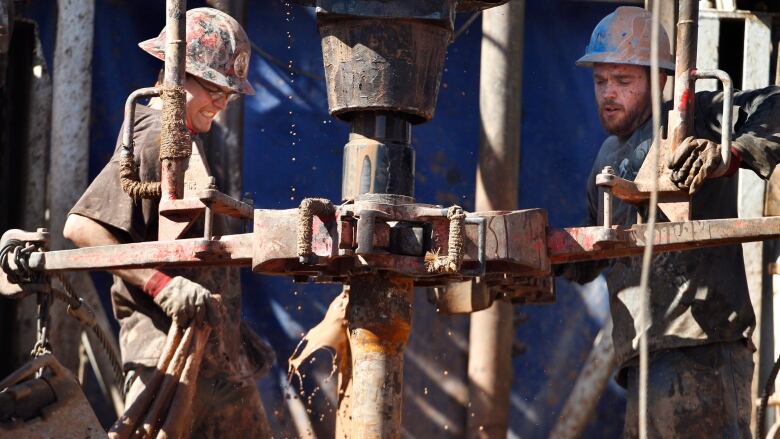Alberta unemployment rises to 8.6% in July, highest rate since 1994
Uptick reflects more people looking for jobs, Statistics Canada says

The unemployment rate in Alberta has hit its highest level since September 1994, at 8.6 per cent in July, Statistics Canada says.
The July numbers werereleased on Friday in the federal agency's monthlyLabour Force Survey (LFS).
Over the past year, 104,000 full-time jobs were lost in Alberta. Factoring in full- and part-time job losses, the figure shrinks to 49,000.
Since July 2015, Alberta's unemployment rate has risen2.4percentage points.
In Calgary,the unemployment rate of 8.6 per cent was the worst among 33 Canadian metropolitan areas surveyed.
Edmonton's unemployment rate of 7.7 per cent was the sixth highest.
Economist Todd Hirsch of ATB Financial said that although Alberta shed jobs for the fourth consecutive month, the number was "negligible" and the increase in the unemployment rate was really caused by 17,600 more people entering the workforce. Statistics Canada reported the province lost 10,600 full-time jobs and gained 9,100 part-time jobs in July compared with June.
Nationally, Canada's economy lost about 31,000 jobs in July. Full-time employment fell by71,000, offset by a gain of40,000 part-time jobs.
That was the biggest one-month drop in five years, putting the national unemployment rate at 6.9 per cent.
Economists had expected Canada's economy would create about 10,000 jobs.
Fort McMurray wildfire disrupted data collection
Statistics Canada says the mass evacuation of Fort McMurray during the May wildfire prevented the agency from collecting data for that region.
As a result, separate estimates for the economic region of Wood BuffaloCold Lake won't be published for June or July, the federal agency says.
The missing data for Wood Buffalo were replaced with substituted values taken from similar respondents in surrounding areas.
"The population of Wood Buffalo represents twoper cent of the population of Alberta. Therefore, the impact of this interruption in data collection is minimal on provincial estimates and negligible on national estimates," the agency said in a release.
"The decision to resume collection for theLFSin Fort McMurray will be taken in collaboration with Alberta provincial and local governments," the release said.
- MORE ECONOMICNEWS| GMP Capital to buy Calgary-based FirstEnergy Capital for $99M
- MORE ECONOMIC NEWS|Former oilpatch workers struggle to jump to Alberta's growing high-tech sector
With files from The Canadian Press












_(720p).jpg)


 OFFICIAL HD MUSIC VIDEO.jpg)
.jpg)



























































































